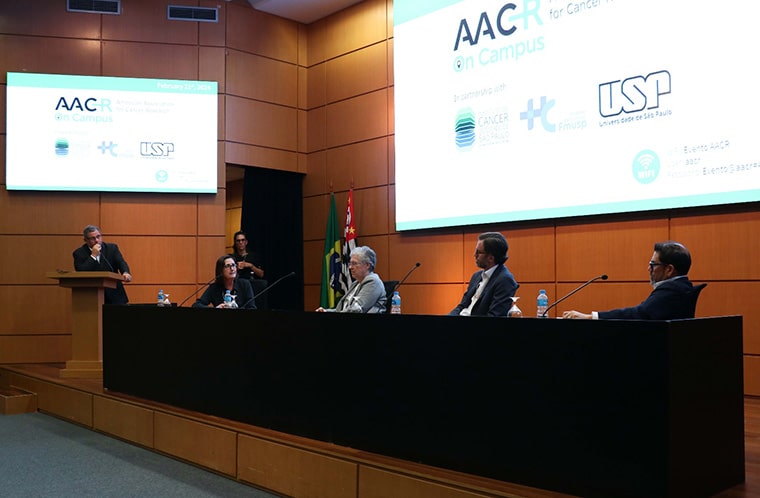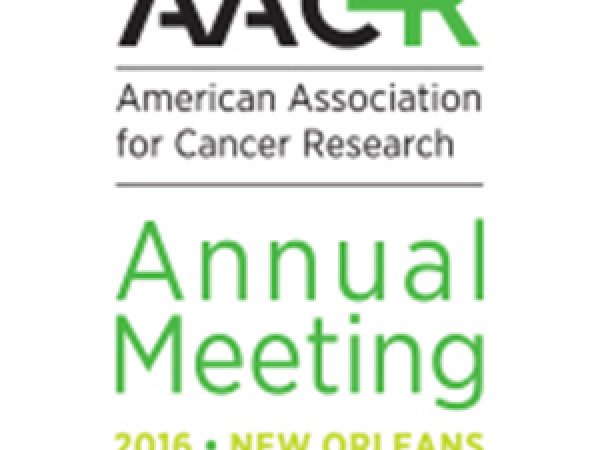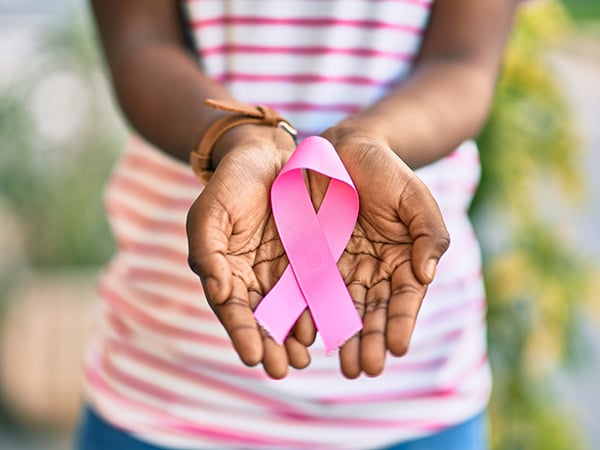Education that Enchants—AACR on Campus Goes to Brazil
Cancer knows no borders, and neither should the latest in cancer research. That’s the idea behind AACR on Campus (AACRoC), a new outreach program designed to advance global collaboration in cancer research. AACRoC offers young investigators at research institutions in low-resource settings across the globe an opportunity to learn from renowned cancer research experts and develop soft skills such as manuscript writing, scientific communication, and network/career development.
In February, AACR on Campus partnered with the Institute of Cancer of São Paulo (ICESP) and University of São Paulo (USP) to host 2024 AACR on Campus in Brazil in São Paulo and Ribeirão Preto. With material support from the São Paulo Research Foundation (FAPESP), AACR and its partner organizations delivered a full- and a half-day program tailored to the interests and needs of early-career cancer researchers and clinicians in each of the two locations, including a one-day “Frontiers of Cancer Research” convocation at FAPESP headquarters.
One participant remarked in an online survey, “It was my first participation in an international congress, so I was enchanted by the themes, the debates, and the way everything happened, I managed to choose a very interesting and engaging theme.”
AACRoC speakers included Thomas U. Marron, MD, PhD, The Tisch Cancer Institute, Mount Sinai; Renata Pasqualini, PhD, Rutgers Cancer Institute, Rutgers University; Luis A. Diaz Jr., MD, FAACR, Memorial Sloan Kettering Cancer Center; and AACR President-Elect Patricia M. LoRusso, DO, PhD (hc), FAACR, Yale Cancer Center, Yale University. Topics included molecular therapeutics, genomic analyses, immunology, and optimal dosage during phase I clinical trials.
Each event was followed by a poster session. Two posters were selected based on their meritorious poster presentation for a travel award to attend the 2025 AACR Annual Meeting.
On-site champion Roger Chammas, MD, PhD, director, Center for Translational Research in Oncology at ICESP and faculty of medicine at USP, served as both a gracious host and an active chair.

In sustaining connectivity and interactions beyond the 2024 AACRoC Brazil events, participants will be given the opportunity to join a special AACRoC interest group within the Comprehensive Center for Precision Oncology at the University of São Paulo as well an AACRoC Global Alumni Network that serves to connect AACRoC participants in person at AACR Annual Meetings and virtually.
AACR Global Affairs is working with prospective partners and funders who have expressed interest in developing future joint AACRoC offerings around the globe.



